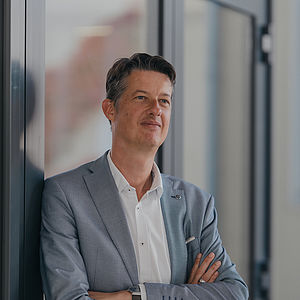"I conduct globally comparative research on crises of democracy and authoritarian tendencies. That includes right-wing populism. I want to systematically study how populists in the government act, for instance. What is their record in power? What style of government do they adopt, what output have achieved in terms of laws and decrees? What implications does this have for the system's constitution, both in the short and in the long term? So far, surprisingly little research has been done in this respect.
Right-wing extremism and right-wing populism as challenges for democracy – I have been interested in these topics for a long time. I was the first to publish a German-language book on populists in power when the topic was not yet as much a public issue as it is now. Also, I became interested in political theory early on while I was still a student. What made a particular impression on me when I was finishing my bachelor's degree programme in the US were the conversations I had with the then 91-year-old Leo Löwenthal, one of the co-founders of the Frankfurt School's critical theory. Löwenthal had moved to the US after being forced to emigrate by the National Socialists and was later offered a position as sociology professor at the University of California in Berkley.
One of the things that drew me to Passau was the fact that the university allows you to collaborate with colleagues from various disciplines in researching and teaching about socially relevant challenges, including crises in democracy and climate change. Moreover, the University of Passau takes an interdisciplinary approach in exploring questions for the future, such as digitalisation and sustainable developments, and I get to contribute with my research."
More on his Research
In his research, Professor Rensmann studies authoritarianism, antisemitism, populism and right-wing radicalism around the world using a comparative approach. In 2021, he authored an analysis for the American Jewish Committee Berlin on the extent to which antisemitism is part of the core programmatic agenda of the German political party Alternative for Germany. Currently, he is heading a "darkfield study" in North Rhine-Westphalia to shed light on the spread of antisemitic prejudice and resentment in society.




